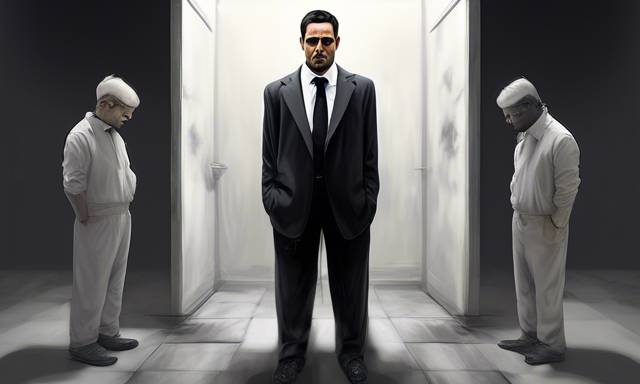Yuki Gambaryan Advocates for the Release of Tigran Gambaryan 🚨
Tigran Gambaryan, an executive at Binance, has been in custody in Nigeria under controversial circumstances. His wife, Yuki Gambaryan, made a heartfelt appeal for his release during a recent podcast episode of “Designated,” hosted by Yaya Fanusie, a former CIA analyst. The couple’s family struggles amid this legal turmoil have been highlighted as she shares her emotional journey in coping with his imprisonment.
Renewed Calls for Justice from Yuki Gambaryan 🎤
On October 1, Yuki passionately expressed her feelings about her husband’s detainment, occurring unexpectedly earlier this year. She asserted that Tigran is innocent, emphasizing, “He didn’t do anything wrong. He is suffering and needs to come home.” Yuki voiced her concerns that this situation could befall anyone, urging the audience to understand the gravity of an innocent person facing wrongful imprisonment. Her determination to see Tigran released stems from a palpable sense of urgency and empathy towards others who may find themselves in similar plights.
Despite the overwhelming anxiety regarding her husband’s health and safety, Yuki strives to maintain strength for their two young children. Recently, an incident at a local park deeply haunted her. While they were out, her son pointed to an airplane overhead, wondering if his father was on board. This innocent question tugged at Yuki’s heart, underscoring the emotional toll of their family’s current situation.
Health Challenges Faced by Tigran Gambaryan 🏥
Tigran has been held in a Nigerian prison since his arrest on charges of money laundering and tax evasion, allegedly arising from his visit to the country for discussions on policy. His assurances of safe passage were reportedly disregarded, placing him in a precarious legal battle. Critics of the charges believe Tigran has become a scapegoat amid Nigeria’s internal difficulties.
While his associate, Nadeem Anjarwalla, managed to avoid detention, Tigran remains imprisoned in Kuje prison, situated near Nigeria’s capital. His health has rapidly deteriorated in custody, where he has suffered from malaria, double pneumonia, and complications from a herniated disc. Disturbing images surfaced showing him in distress during court appearances, visibly struggling with his physical condition and emotional anguish.
During a court session last month, Tigran was recorded expressing his deep distress: “I’m not okay” and questioning why he wasn’t allowed to use a wheelchair. His pleas resonate with the desperation of someone who feels wrongfully treated, declaring, “I am innocent—why are you doing this to me?” His harrowing experience underscores the harsh realities faced by individuals caught in legal battles under dubious circumstances.
Yuki Gambaryan’s Plea to the U.S. Government 🇺🇸
Yuki’s advocacy doesn’t stop at raising awareness of her husband’s plight. She expresses a desire for the U.S. State Department to officially recognize Tigran as wrongfully detained. This acknowledgment could pave the way for diplomatic discussions and actions supportive of his release. Yuki poignantly remarked, “What Tigran is going through every day is a complete disregard for justice and humanity and it should not be tolerated.” Her sentiment reflects a broader concern about the human rights implications of such detentions and the need for international awareness and action.
Maintaining hope in the face of adversity is challenging for Yuki. Each passing day seems to bring new trials, and she describes the struggle to sustain optimism amidst such dire circumstances. Her dedication to Tigran’s eventual freedom is evident as she rallies for both support and justice within a system that often seems indifferent to personal suffering.
Hot Take: The Implications of Imprisonment in Global Contexts 🌍
The situation surrounding Tigran Gambaryan serves as a crucial reminder about the complex nature of international law, human rights, and the implications of unjust detainment. It emphasizes the importance of seeking fair legal practices and ensuring that justice is accessible to all, irrespective of circumstances. As individuals like Yuki Gambaryan fight for their loved ones, it highlights the human element behind such legal disputes and the need for global awareness regarding the treatment of individuals across borders.
Ultimately, bringing Tigran home is not just about one individual’s freedom; it represents a broader call for justice and accountability within the systems that govern us. The story of the Gambaryan family serves as an ongoing narrative that questions legality, humanity, and the ethical frameworks that govern our global society.





 By
By
 By
By

 By
By
 By
By
 By
By